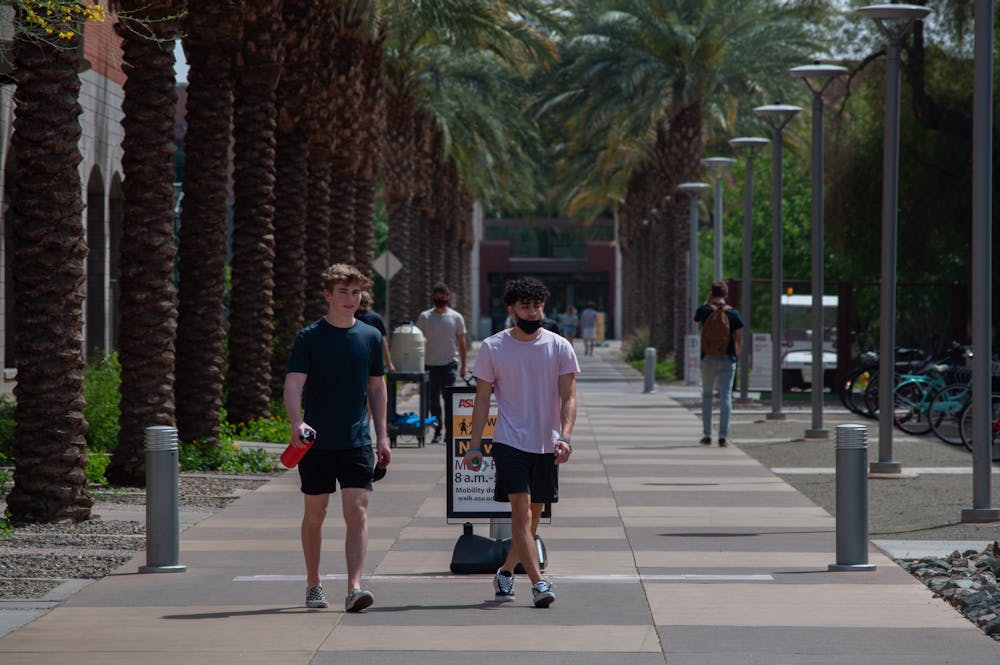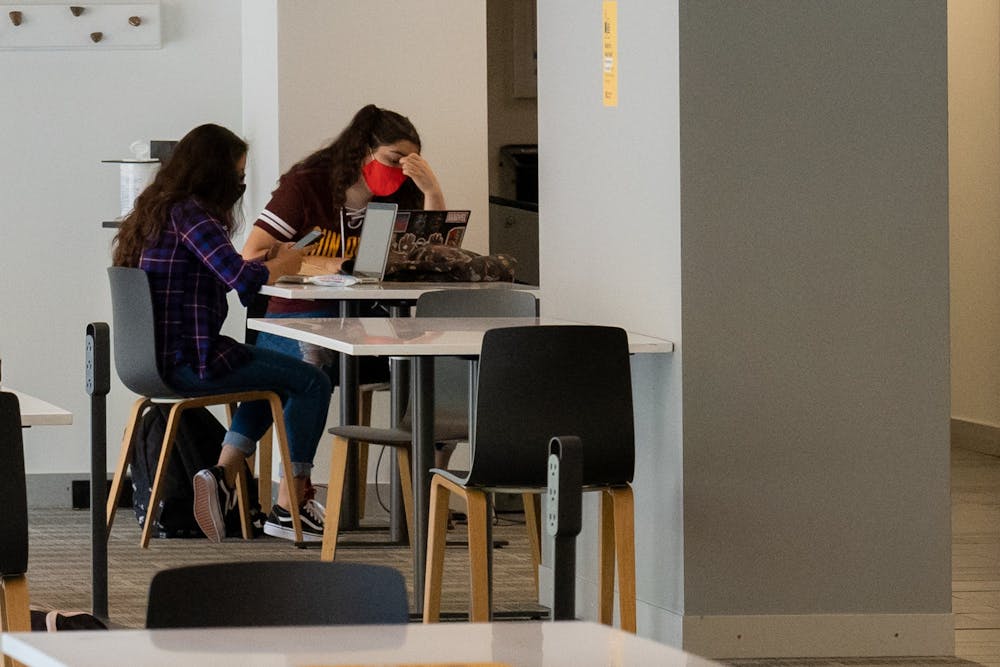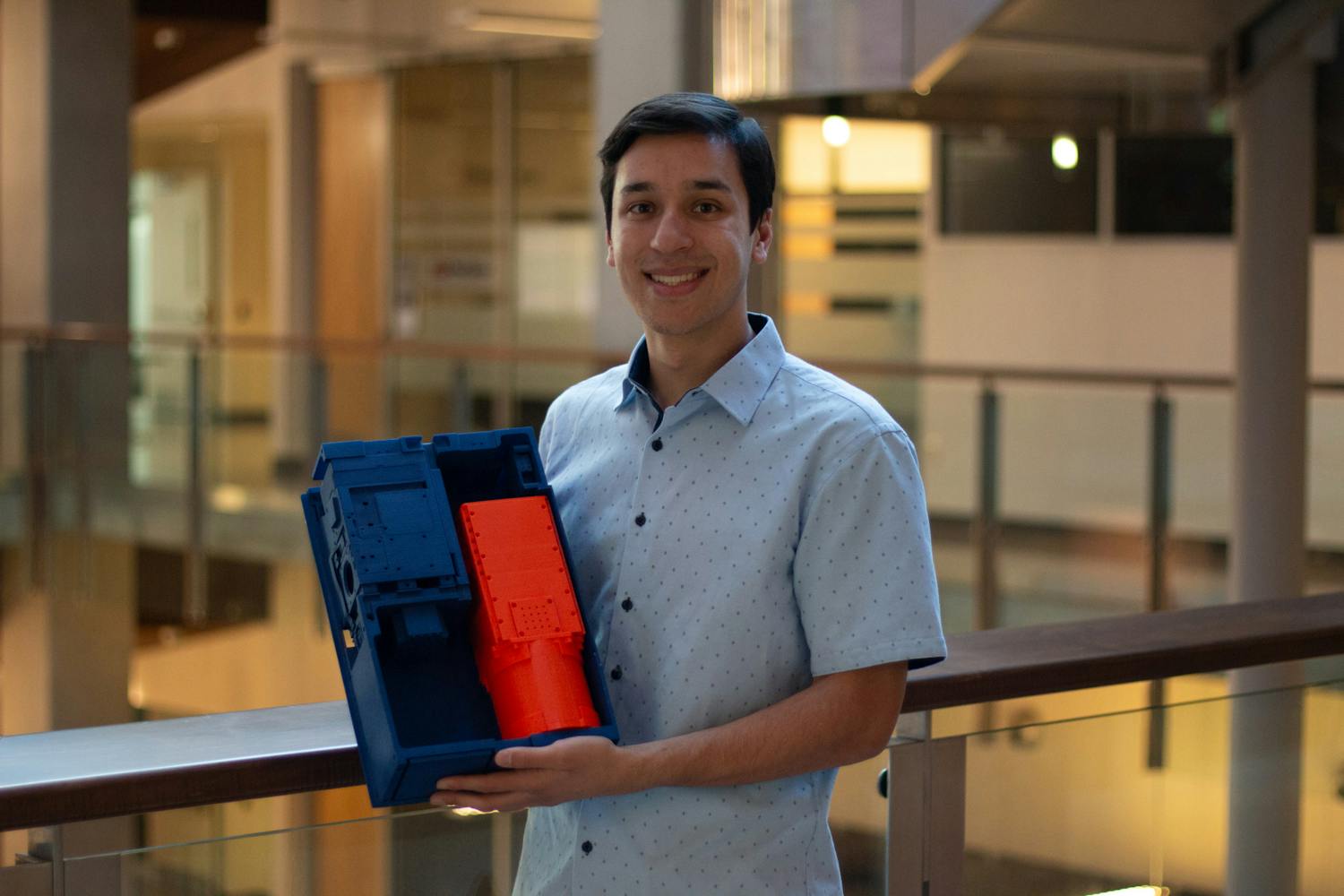As students returned to campus in August 2020, showing proof of a negative COVID-19 test at move-in and not yet understanding the three versions of ASU Sync they'd be subject to, they settled into a reality that some days felt like science fiction.
Learning in a pandemic was never part of the plan for ASU students. Grieving the loss of loved ones they were never able to say goodbye to, testing positive for the virus themselves and not knowing concretely what long-term effects it would have on their bodies weren't part of that plan either. In back-to-back semesters, students went without a significant break from classes, leaving them no time to decompress and to feel the University wasn't "taking (their) mental health into consideration at all."
But as they rolled with the punches, some students relished in their achievements despite hardship and demand the University implement a safe plan for another year.
When the University announced it would welcome students back to campus in the Fall 2021 semester, students said they hope professors remain lenient and flexible, that ASU Sync continues to be an option and that COVID-19 vaccines be required.
READ MORE: Tired, burned out students look forward to fall return with some hesitation
Janelle Sadsad, an incoming senior studying chemistry, said taking a leave of absence from work to focus on school didn't alleviate stress like she hoped it would. The work she was turning in was completed moments before its deadline or was finished because it needed to be done, not because she wanted to do it or use it to learn something new.
Sadsad said she found solace throughout the year in social media accounts run by students who reminded their peers of study resources and the best ways to destress. She said reminders to take breaks and take a step back from school work to reflect kept her going.
"Little things like that make a big impact," Sadsad said.
Tristan Silva, a recent graduate with degrees in global studies and philosophy, said his last semester of undergraduate schooling was easier than those that came before it because he was able to take fewer credits. And while doing so over Zoom was annoying at times, he was grateful for the in-person experiences he did have, thanks to a core group of friends he established throughout his time at ASU.
Silva, who worked as a community assistant overseeing a residence hall, could see his residents and other freshmen new to the University struggling to make friends and feel welcomed. Despite the problems, they all got through it.
"I always had a sense, or belief in, resiliency. … The fact that people are still going to school indicates that," Silva said. "It's not convenient by any stretch of the word, but people are still stretching it out."
Overall, the situation with COVID-19 could have been a lot worse, he said. "I thought the University was very proactive with resources and figuring out 'Zoom University' in general," he said.
To continue "handling the pandemic well" in the fall, Sadsad said ASU President Michael Crow and the University should work to get more students vaccinated and, if possible, "mandate (its) requirement for returning students."
Elliot Muhlenfeld, who just completed his first year of law school, said he didn't perform as well as he had hoped with the class material being delivered over Zoom this year. A return to in-person instruction would change that, he said, but vaccinated students is "the only way (the school) can make things truly safe."
Sadsad said she was excited when ASU announced it would welcome students back to campus for in-person instruction. She's the type of student who shows up early, likes to sit at the front of the room and ask questions during lectures. Muhlenfeld said he was excited too; he's never been inside The Beus Center for Law and Society, the University's law school building.
"But my main concern was how are we going to maintain people's health and safety," Sadsad said. "We need to make vaccines mandatory for returning to in-person instruction," she said, adding she knows some students won't or can't get one. "Obviously, I wouldn't want that to stop their education, but at the same time, you can't put everyone else at risk."
In a recent meeting with The State Press, Crow said the University will not yet require students to get the vaccine but it is expected they do so. The University has been offering vaccines to ASU community members for several months, and if vaccination rates change or more contagious variants emerge, then plans could change, Crow said.
READ MORE: COVID-19 vaccine expected for students but not yet required, Crow says
The next year will look very different for Sadsad. She'll be going into the last year of her undergraduate degree at ASU; she'll take more difficult classes; and she'll be conducting research for her thesis through Barrett, The Honors College. But she'll still worry about the small things: students wearing masks properly, who might be vaccinated and how far apart everyone is sitting away from each other in class — all concerns she's learned from the pandemic — and all things she knows will add to her stress and the pressure for ASU to make the semester safe.
"The daily hassles are more stressful than the big life challenges," she said. "I wouldn't want to take that frustration out on a professor I'm working with just because someone else doesn't know how to do their part."
Reach the reporter at pjhanse1@asu.edu and follow @piperjhansen on Twitter.
Like The State Press on Facebook and follow @statepress on Twitter.
Continue supporting student journalism and donate to The State Press today.

Piper Hansen is the digital editor-in-chief at The State Press, overseeing all digital content. Joining SP in Spring 2020, she has covered student government, housing and COVID-19. She has previously written about state politics for The Arizona Republic and the Arizona Capitol Times and covers social justice for Cronkite News.





